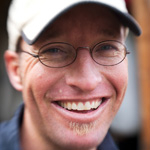 Dan Oberlatz - Owner, Alaska Alpine Adventures
Dan Oberlatz - Owner, Alaska Alpine Adventures
As a small business, we understand the economic impact of tourism on both a state and local level. Because most of our adventures take place in rural Alaska, our clients' dollars are spent locally and thus support local community businesses. From the fuel delivery person, to the air taxis we choose to transport our guests, to lodges and restaurants, we use local vendors for all of the support operations of our adventures. This gives our guests a chance to learn firsthand about life in rural Alaska and it also helps boost awareness about the challenges that face rural Alaska residents.
In your perspective, is this initiative working as you expected - why or why not?
This is how we've operated for the past 15 years, so yes. For us, this is more about best practices and a sense of community than about some sort of business initiative. Our partners in rural Alaska are integral to the success of what we do. We would go nowhere without the professionalism, dedication and commitment of our partners and local communities where we operate. We firmly believe that the very nature of our trips represents the "gold standard" of Alaska tourism.
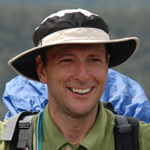 Alejandro Gonzalez - Venezuela Elite
Alejandro Gonzalez - Venezuela Elite
We are actively involved with an NGO (www.fet.org.ve) that is dedicated to empower Adventure Travel related projects from small, local entrepeneurs in rural or remote areas of our country. We focus on communities as a whole, undertaking a holistic approach that considers the local culture, environment, commerce and social impacts apart from the business aspect of the project itself. We also try to make the different projects complement one another, so they can all do better.
In your perspective, is this initiative working as you expected - why or why not?
Yes. It's allowing remote communities to embrace Adventure Travel as an alternative source of income, without radically changing their traditional ways. It's helping them to value and actually recover their cultural legacy, especially with the younger generations. And it is helping them to see nature as a resource to preserve not only to exploit. From a business point of view, it's allowing us to offer innovative products/services in conjunction with these local entrepeneurs, thus enriching the traveler's experience. It's a Win-Win-Win situation.
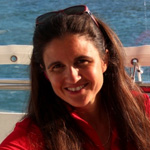 Tullia Caballero - Director, S-Cape Travel
Tullia Caballero - Director, S-Cape Travel
S-cape Travel has its offices in Italy, Spain, Greece and Holland. This means we are local and know our areas like the back of our hands, giving clients an insider's experience. We always use small, hand-picked, family-run accommodation and local suppliers for all our trips, which means all the money spent on a trip stays in the area where you are traveling. We recommend clients use local transport including buses and trains to reduce CO2 emissions and enhance their experience and interaction with the locals.
In your perspective, is this initiative working as you expected - why or why not?
Yes, it is working because the independent clients appreciate the flexibility and freedom they have as they discover it is easy and safe to travel in the rural areas of the Mediterranean, and it's a great way to meet the locals.
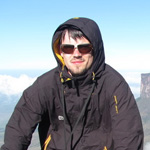 Denis Yasinko - Project Manager, Wild Russia Travel and Adventures
Denis Yasinko - Project Manager, Wild Russia Travel and Adventures
For example there is our Elbrus Ascent program. We've been in the region for more than 20 years and a lot has changed for the better since the beginning. Many of our trained guides opened guiding schools. There they teach how to work with the most demanding international clients, up to the highest standards. The local travel market is developing swiftly. One can find a wide range of adventures there - from simple valley hikes to guided Elbrus ascents and heli-ski tours. The locals understand that tourism feeds the region, so they are improving the quality of their services and resources. We believe that our company played a considerable role in developing the region.
Tammy Leland - CoFounder and International Program Director, Crooked Trails
All of our clients are instructed to spend money on locally owned services (restaurants, hotels, guides, transportation, souvenirs).
In your perspective, is this initiative working as you expected - why or why not?
Yes! They are committed to the Crooked Trails philosophy and feel empowered to be a part of something good.
Irene Morgan - Regional Director USA & Canada, Destination NSW Australia
NSW Indigenous Champions program supports 15 different Australian Aboriginal tours and experiences which in return support and empower local indigenous communities, arts, culture and history. Indigenous Champions just launched in March 2012 but has already expanded into a national Australia program with indigenous communities taking part. More and more indigenous experiences are being included in Australia travel programs on offer in North America.
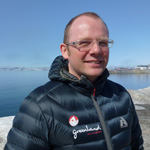 Anders la Cour Vahl - Deputy Director, Visit Greenland
Anders la Cour Vahl - Deputy Director, Visit Greenland
As a government owned organization, we are strongly concerned about increasing local income and benefits from tourism. In 2012 we succeeded in passing a new legislation allowing local companies to hold exclusive rights to a tourism activity in a certain area. This is extremely significant, as all land in Greenland is communal and until now, there has been no legal way to deny outside operators to operate on rivers and nature areas and in some cases oust local initiatives. The new legislation will be a tool for the government to enhance local development and nature preservation in return for exclusive rights and will present the local companies with a whole new foundation to attract partners and capital from the outside and build their companies without losing control. The first step was getting the law passed. This happened in parliament this October, so we still do not have the necessary data to evaluate the outcome.
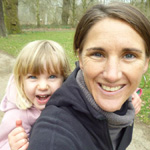 Becky Harris - Owner, Viaventure Central America
Becky Harris - Owner, Viaventure Central America
We have worked with a community in the rainforest at the archaeology site of Uaxactun in Guatemala to set up a camping product. Our guide is from that community and helped us set up the program so that it benefits the local community as much as possible. We employ people from the community to do everything - store and set up the tents in the archaeology site, set up and cater the meals in front of the temples, guide guests around the community and the archaeology site and build new furniture for the tents. We also pay the community a fee for use of the site each time we visit. It is a very unique and popular product and we took our whole office staff of almost 30 people up to experience it. We also fund projects in the community as and when they come up such as building work at the school.
We feel it has been a great success. Feedback from clients is excellent as it is a unique tour and at the same time it is very clear that it is benefiting the local community which our clients like. Having someone from the community on our staff also means that we feel we are always listening to what the community needs and working with them on that.
 Marie Friede - Managing Director / Founder, African Profile Safaris
Marie Friede - Managing Director / Founder, African Profile Safaris
Being a mother of young children (a 19 month baby and 7 year old), this of course is something where I always feel we can do so much to assist. Even the simplest gift of a pair of coloring pencils can lighten a child's day. 100US$ can pay a child's school fees for a year in a public school. During our safaris we always include some "education" for our clients on this and we have established our own trust fund, called Hope Childrens Fund. Through this we will make sure that funds donated do not go into administration but actually get to the people that need it. We normally focus on a specific project like buying a fridge, beds, etc for an orphanage or donating clothes to a poor church community in Mondesa. Clients can visit these projects enroute if they want to. A current project we are working on is for a client who had a vehicle breakdown in the far north of Namibia. The family who helped him is extremely poor and walk very far to get water every day. So now we are busy assisting them to buy a donkey so the lady don't have to carry the water containers so far. Although she has a small plot with enough browsing for a donkey she has no form of employment to generate funds to buy one. We are also involved in our hometown with the Hope Village and other community projects.
Two weeks ago we took part in baking 1,500 pancakes for homeless children as part of a local radio station promotion. Although you don't really get any publicity out of these, it is for ourselves a great warm feeling to know you were part of (even behind the scenes) a project of this magnitude. In all safaris, we include a very small fee (not even mentioned to clients/agents) that we can then use to support such projects. Even in biking safaris, we will end up biking to a local Bushmen school or other community projects - this puts a different angle on your normal biking or hiking experience, you can have fun and do good. (We make a donation that often clients don't know about). Next year, we will be doing specific flying safaris and bringing doctors out to the Bushmen Lifeline clinic situated at Epikiru in the Kalahari Desert. This will open up the future for volunteers, special needs projects and donations for the clinic. For environmental [concerns], we believe the only way to go is education, and for this we make sure that clients travel with conservationist guides who can teach them respect and hopefully develop a love for nature in its true form. Also having young children from Europe or USA on a tour can be a life-changing experience for them if your guide knows how to teach them the little tricks of nature, how to find your way, how to read the desert dune newspaper or find water etc.
In your perspective, is this initiative working as you expected - why or why not?
Yes, although sometimes the results are slow and often we can do so much more if we had more money. By keeping it small, we keep it manageable. Recently we were contacted by one of our client's daughters that was on a safari when she was 12, now she is turning 18 and organizing a school trip and she of course wants to bring them to Africa and introduce them to conservation and nature here in Namibia.
Carrie McDougall - President / Owner, Cultural Crossroads
We give a portion of our profits to sustainable community projects in the country where we travel. Many are around women and children programs, such as cooperatives as well as education and economics. For example: In Jordan, we support the Jordan River Foundation. Established in 1995 by Her Majesty Queen Rania Al Abdullah, the Jordan River Foundation is a non-profit NGO, whose mission is "to engage Jordanians to realize their full economic potential and overcome social challenges especially child abuse," and whose values are "Social Justice, Participation, Responsibility and Sustainability." Also, we stay in small hotels that do not have "brand" names. They have the local feeling of the culture and are run and staffed by local people. An example of this would be Haciendas handed down through the generations. Where possible, we eat in small gems of restaurants where the locals eat (not tourists) and where there are up-and-coming chefs, and eat occasionally in local homes. We wander and shop at the local markets off the tourist routes.
I believe our continued initiative is working well. Our traveler's value being able to give back through their travels and enjoy the visits to many of the benefitting communities or projects. They are looking for experiential travel and opportunities to get off the beaten path to meet locals, eat in their homes, and have intercultural exchanges. We provide that for them.
 Katarina Mancama - Marketing Manager, Fair Trade in Tourism South Africa
Katarina Mancama - Marketing Manager, Fair Trade in Tourism South Africa
We do this by encouraging travelers to select a Fair Trade Tourism certified product (accommodation, activity, attraction), as this contributes towards creating and sustaining decent jobs, ongoing community investment and environmental conservation.
In our experience, the sustainability of the product is not included in the first tier of the decision-making process in the same way as location and price. However, for a number of travelers, whether or not the product is operating sustainably would be part of the second tier of decision making (if one of two hotels in Cape Town in the same price bracket is certified Fair Trade, we have indication that this would sway the traveler to select the certified hotel).
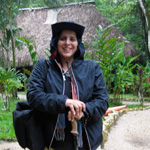 Manal Saad Kelig - Co-Founder & Director of Marketing, Gateway To Egypt & Great Wonders of Egypt
Manal Saad Kelig - Co-Founder & Director of Marketing, Gateway To Egypt & Great Wonders of Egypt
We do not have a dedicated program , but we have three nonprofit projects and organizations that we direct our travelers to help. One is adopt-a-school, this project has certain schools selected for maintenance, painting, having a library. Budget is set and locals and travellers alike donate to it. Local students even do fundraising campaigns.
This initiative is working better on the local level as we do not have a good number of travelers now due to the drop in tourism in Egypt.
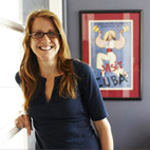 Kathy Stewart - Director PR, Butterfield & Robinson
Kathy Stewart - Director PR, Butterfield & Robinson
The B&R Fund is dedicated to supporting local communities that B&R trips visit. We support women's literacy in Morocco, a school in the Sacred Valley in Peru and our most robust project is a home building project in Inle Lake in Myanmar. Each B&R trip in Myanmar donates a home to the community and shares in the house blessing ceremony.
The great thing about these initiatives is that we share the project with our travelers and it becomes an authentic experience on the trip. It is a 'feel good' experience which is both educational and beneficial to the local people, without being voyeuristic.
Natalie Morris - Head of Sales, Wild Frontiers Adventure Travel
We try to steer our clients into rural areas to ensure that money goes into the local economies at grassroutes levels (i.e., shopping for souvenirs directly with the handicrafts makers or community cooperatives). It means that local people benefit from the presence of tourism and make efforts to encourage it.
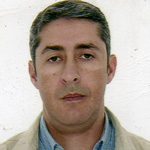 Hernan Acevedo - Incoming Tourism Manager, Voyage Colombia
Hernan Acevedo - Incoming Tourism Manager, Voyage Colombia
As an example, we are helping Hato La Aurora Natural Reserve (private) improve their services using the local community and also found an intern that will work on a project to make the Reserve a more sustainable and responsible operation. At the moment, it is not working very well as oil companies are hiring locals to work with them, so it's very difficult to keep an employee for more than three months. [By then] training is lost. The intern will begin working at the reserve in January.
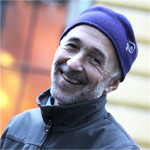 Lubomir Popiordanov - CEO, Odysseia-in Adventure Travel Company
Lubomir Popiordanov - CEO, Odysseia-in Adventure Travel Company
80 percent of Odysseia-in travelers visit the rural mountain villages of Bulgaria and overnight in family-run guesthouses. Our clients especially value the connection with the locals that we include in our itineraries, including local cultural performances, attractions, museums (example: Home-made dinners and meeting with the local folklore groups or craftsmen). For some tours, we pay "local" guides (in addition to Odysseia-In guide). We are preparing a couple of proposals for voluntary participative tours in the remotest part of Bulgaria. In September 2008 we launched a campaign for donation of 3 Euro per tourist who books a tour with us for the Coalition "Let Nature Remain in Bulgaria." Our appeal already received understanding in several tour operators from Spain, France, England, Germany, Austria and Switzerland. They were all happy to donate funds for nature conservation and public awareness in Bulgaria. We believe that this campaign is very important and it can create a good marketing tool to achieve a very successful "Destination Bulgaria" in 2009 and the years after.
We hope that the positive change in Bulgaria's green policy is possible and in this way we want to involve more Bulgarians to feel part of it. In 2009 we met 347 tourists, who travelled with tour operators supporting this initiative: AlpinSchule Innsbruck, Baumeler Reisen, Explore Adventure Holidays, Inntravel Holidays, La Balaguére, ADEO, Viajes Tuareg, Destinations Queyras. Per each customer the partner company allocated 3 Euro and we did the same. As a result we collected altogether 2082 Euro. The money was allocated to "Let Nature Remain in Bulgaria" and "For Eho hut." This campaign has been awarded at national level among the most innovative ones in 2010. The campaign continued in 2011 with a huge investment project for full rehabilitation of the Eho hut in order to make it the first ever green and energy efficient tourist establishment in Bulgaria! The total amount the campaign is willing to collect is almost 80,000 Euro via private and corporate donations and events largely covered by media.
This project, in our opinion, is a big achievement and very successful, especially since it is the first project of its kind for Bulgaria. Unfortunately in 2012 we didn't manage to keep the project alive and it is now in a stand-by mode. But thanks to our mutual efforts and the support of our partners and clients the following achievements have been accomplished:
- Support for the NGO "Citizens for Rila", member of the coalition "Let Nature Remain in Bulgaria"
- In 2009 "Citizens for Rila" organized 3 exhibitions in the very heart of the capital city Sofia. The focus of these exhibitions was to bring awareness with high quality images to the problems in the area of the Seven Rila Lakes in Rila National Park. The problems are related to the construction of an illegal chair lift and the projects for developing ski zones in protected territories. Support (nearly 2,000 Euro) for Association "For Eho", a friend of the coalition "Let Nature Remain in Bulgaria".
- In 2009 "For Eho" took over the operation of a high mountain hut in Central Balkan National Park. The aim is to re-organize the activities of Eho Hut and set an example for the first ever eco hut in Bulgaria. Some of the actions taken so far are: appointment of new hosts in Eho Hut, waste management, energy savings, eco toilets, etc.
- Support for "Beglika Fest" in the Rodopi Mountains – in Beglika Nature Reserve - Support for Eco Hiking Tour "I love Rila, I walk on foot" - Support for "Campaign for Vitosha Nature Park".
